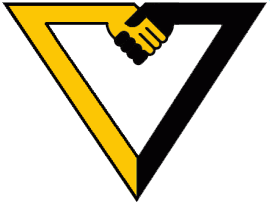Democracy versus Autonomy in Legal Norms - Hogeye Bill
For [modern statists] law needs only one attribute in order to give it validity; it must, directly or indirectly, be sanctioned by the State. But in the Middle Ages, different attributes altogether were essential; medieval law must be "old" law and must be "good" law….If law were not old and good law, it was not law at all, even though it were formally enacted by the State. - Fritz Kern, "Kingship and Law in the Middle Ages."
In a recent discussion about rules and legal norms in an anarchist (stateless) society, it became clear that there are two different visions. One vision of community norms stresses democracy - the continuous input of the community in setting rules. Another view stresses autonomy, individual consent, and contract.
| Democracy vs. Autonomy | Democratic | Consensual |
|---|---|---|
| stability | lower | higher |
| flexibility | higher | lower |
| property protection | lower | higher |
| solidarity | higher | lower |
| distributive bias | end-state (fairness, equality) |
entitlement (justice, merit) |
It seems to me that, if the main purpose of norms is to protect people’s rights, then the Consensual Model is better. Rights, especially property rights (which all other rights boil down to) are more secure when they cannot be outvoted by a majority. Consensual systems are democratic in a market sense - people buy what they want, and the firms that provide what they want survive and thrive. Those that can’t fail, and release resources to those that can.
The Consensual Model could just as well be called "the emergent model." It prefers the emergent order of market "democracy" to the vagaries of gang rule. There is no doubt that with a Democratic Model people can change the rules faster, and thus it is capable of reflecting popular opinion more quickly and accurately. Do you want your rights and property subject to the will of the people (or alternatively: the whim of popular opinion)? The answer to this separates the democrats from the voluntaryists.


Collectivist anarchists tend to favor the Democratic Model, which is not unexpected knowing they value equality and favor end-state distributive justice. Individualist anarchists tend to prefer the Consensual Model, being more concerned with individual rights and an entitlement theory of justice.
There is a second issue related to justice in a stateless society that is sometimes raised: whether or not coercive law is legitimate. The short answer is "yes." So long as enforcement is done without a State, without a monopoly, then coercive law is consistent with anarchism. This is not to say that non-coercive incentives are not preferable to coercive law, but simply that coercive law is legitimate and necessary this side of utopia. Enforcement by voluntary associations is what anarchists expect in a free society. Market anarchists, that is mutualists, geoists, and anarcho-capitalists, envision competing defense agencies - firms and coops and mutual aid groups - in a freed market.
